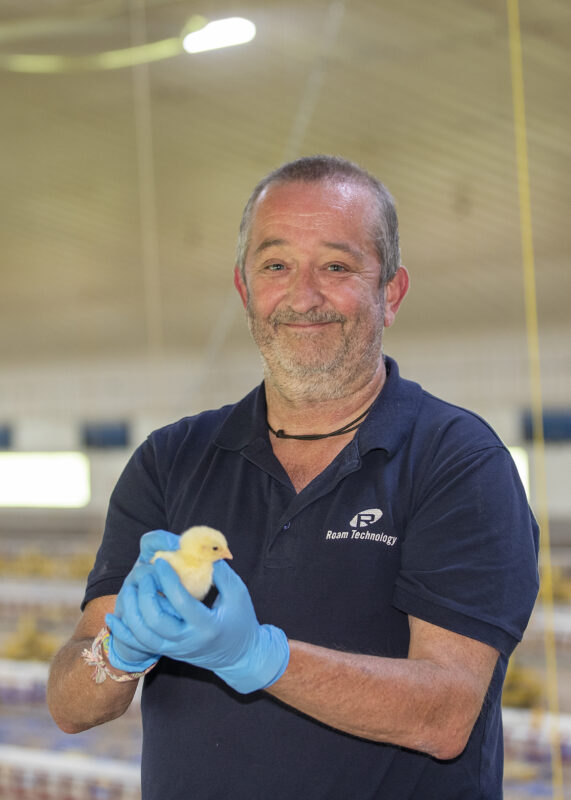
Detection of avian influenza (H5N1) in a sheep in Yorkshire is a reminder for all farms to maintain tight biosecurity, particularly on farms with mixed poultry and livestock.
Although UK Chief Veterinary Officer Christine Middlemiss says the risk to livestock remains low, she urges all animal owners to have ‘scrupulous cleanliness in place’ and to report any signs of infection to the Animal Plant Health Agency (APHA) immediately.

While this is the first time this virus has been reported in a sheep, it is not the first instance of influenza of avian origin being detected in livestock, with cases of infection in dairy cows reported in the US.
However, Dr Middlemiss is urging all livestock keepers to remain vigilant to the clinical signs of avian influenza following recent outbreaks.
“All keepers must maintain good biosecurity which is essential to protect the health and welfare of their animals and critical to preventing the further spread of disease in the event of an outbreak,” she said.
Nigel Bennet, Livestock Area Manager Northern Europe at biosecurity specialists Roam Technology, which recently incorporated Biocidas Biodegradables Zix (BBZix), a Spanish biosecurity specialist, into its business, says every farm should be reviewing and strengthening its biosecurity protocols.
“Prevention is our strongest defence. This means restricting unnecessary visitors, disinfecting clothing and equipment, and closely monitoring animal health.”
He has outlined seven key areas farmers should be aware of to maximise their frontline defences. They include:
- Develop a biosecurity plan: Work with your vet to establish a clear biosecurity plan, including physical barriers, hygiene protocols, and emergency procedures.
- Cleaning and disinfection: Thoroughly clean and disinfect all vehicles, boots, equipment, and housing using DEFRA-approved disinfectants. Visitors should use foot baths and dedicated protective clothing. Roam Technology’s Huwa-San TR50, a DEFRA-approved disinfectant, offers a powerful, stabilised hydrogen peroxide solution that provides long-lasting protection against harmful pathogens.
- Monitor farm access: Restrict and track visitor access to minimise disease risks. Designate parking away from livestock, use wheel washes, and ensure tradespeople follow hygiene protocols. Mr Bennet says: “A farm should not be an open-door environment—every entry point carries risk.”
- Quarantine: New or returning stock must be quarantined for at least 21 days, housed separately, and monitored for disease. Use this period for testing and vaccination before integration.
- Rodent and wildlife management: Secure feed storage and effective pest control help prevent disease transmission from wildlife. Maintain fencing to reduce contact with infected animals and minimise standing water to control disease-spreading insects.
- Optimise housing: Ensure good ventilation, clean high-traffic areas, and maintain water hygiene.
- Monitoring: Daily health checks help detect disease early and prevent outbreaks. “Knowing your animals and spotting illness early is crucial for disease control,” said Mr Bennet. “Stay vigilant and keep biosecurity tight.”
Mr Bennet added: “This case of H5N1 in sheep highlights the need for constant vigilance. Biosecurity isn’t just about responding to outbreaks; it should be a year-round priority to protect farm businesses and animal welfare.
“Farmers must remain proactive in safeguarding their livestock from potential disease threats. With the right biosecurity measures and effective solutions like Huwa-San TR-50 and Roam Eco Power cleaning solution, we can protect both animal health and farm livelihoods,” he said.
Avian influenza is notifiable in all poultry and other captive birds and influenza of avian origin is notifiable in both kept and wild mammals. If you suspect your animals are infected report it immediately to the APHA by calling:
- 03000 200 301 in England
- 0300 303 8268 in Wales
- Contacting your local Field Services Office in Scotland
For more information on biosecurity, cleaning and nutritional solutions, visit www.roamtechnology.com
Leave a Reply